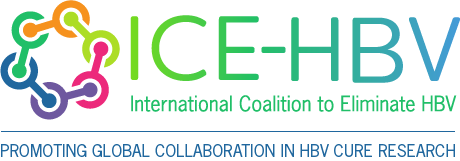World Hepatitis Summit Report 2022
Countries made a historic commitment to eliminate viral hepatitis by 2030 at the 2016
World Health Assembly. Co-sponsored by the World Health Organization (WHO), this year’s World Hepatitis Summit (WHS) came at a crucial point in time. Some gains have been made but progress is uneven, with those most impacted least likely to benefit and most countries failed to meet their 2020 targets. Stigma and discrimination continue to be a barrier to testing and care; and globally more than 350 million people are still living with this life-threatening disease. “The participants of this year’s summit came together and spoke clearly with one voice to demand progress towards the elimination of viral hepatitis, providing concrete calls for action and reaffirming our commitment to move forward together – invigorated, inspired and determined to ensure we achieve our vision,” said Danjuma Adda, current President of the World Hepatitis Alliance (WHA). Read the official report of the 2022 World Hepatitis Summit, which was held virtually between June 7-10, 2022 and included a programme filled with an array of crucial themes ranging from “A whole system approach to hepatitis elimination” to “Reaching communities that need it most” and “Innovations”.
Standardization of quantitative cccDNA measurements
ICE-HBV participates to the DZIF-ANRS international research project on the standardization of quantitative cccDNA measurements.
The objective of this project is to develop reliable laboratory protocols for cccDNA quantification by comparing head to head different methodologies and by exploring new strategies to improve specificity of cccDNA qPCRs. Because of the need of international expertise and cross‐validation among laboratories, different research groups worldwide (both academic and from industry) are currently involved.
In-vivo Models
Better in-vivo models are required to study HBV cures. ICE-HBV held an workshop on this topic in October 2019, which led to the publication of a review article.
Serum Biomarkers
ICE-HBV held online workshop on serum biomarkers of HBV, on 4 October 2020, to build consensus in this area and accelerate cure research. A consensus statement on the topic will be published in 2021.
The Management of CHB in Ressource-Limited Settings
ICE-HBV is addressing the challenge of managing HBV in contexts where access to technology is limited. A global project group of experts is preparing recommendations on the topic.
Community Scientific Literacy Workshops & Webinars
ICE-HBV informs the community about HBV research, making science accessible to all, with a focus on informing people affected by hepatitis B, for instance at the NoHep Village in Toronto in June 2018.
ICE-HBV and The Hepatitis B Foundation also hold a yearly webinar on HBV cure for the community. You can watch the 2020 edition here.
Health Policy
ICE-HBV stakeholders collaborate to ensure appropriate HBV cure preparedness.
They come together to organize health policy activities at major events such as the Global Fund replenishment conference.
The Potential Impact of a Cure for Chronic Hepatitis B Infection: A Population Health and Economic Analysis in Australia, China and the USA
ICE-HBV sparked a collaboration between Stanford Medical School, University of Michigan and the Doherty Institute on HBV Cure modelling. You can find the first presentation from Dr Toy here.
Events & Research Promotion Activities
ICE-HBV participates, promotes and partners with existing HBV cure events worldwide. Partnerships currently exist with the International HBV Meeting, the Science of HBV Cure, the ANRS Workshop on HBV Cure.
